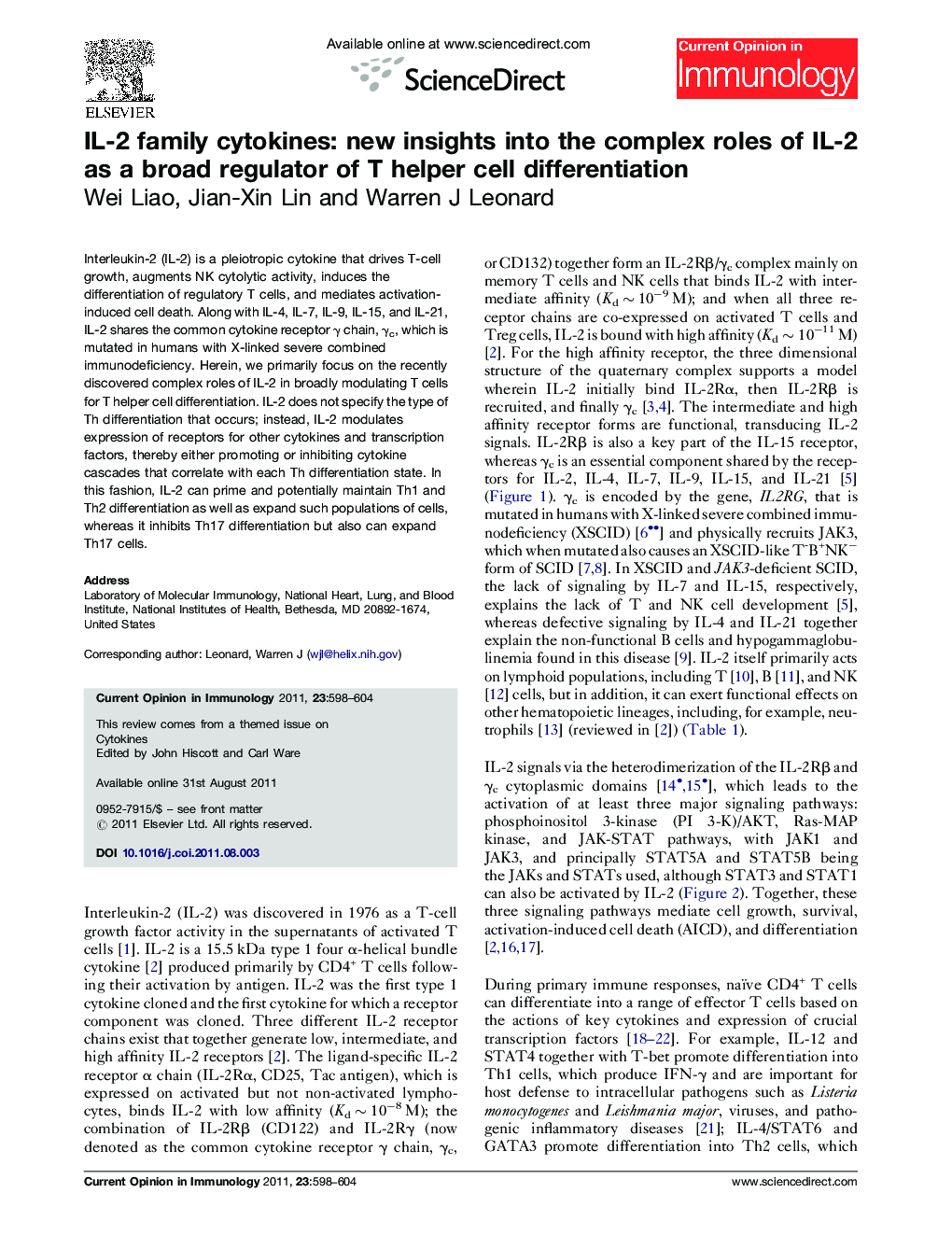| Article ID | Journal | Published Year | Pages | File Type |
|---|---|---|---|---|
| 3346041 | Current Opinion in Immunology | 2011 | 7 Pages |
Interleukin-2 (IL-2) is a pleiotropic cytokine that drives T-cell growth, augments NK cytolytic activity, induces the differentiation of regulatory T cells, and mediates activation-induced cell death. Along with IL-4, IL-7, IL-9, IL-15, and IL-21, IL-2 shares the common cytokine receptor γ chain, γc, which is mutated in humans with X-linked severe combined immunodeficiency. Herein, we primarily focus on the recently discovered complex roles of IL-2 in broadly modulating T cells for T helper cell differentiation. IL-2 does not specify the type of Th differentiation that occurs; instead, IL-2 modulates expression of receptors for other cytokines and transcription factors, thereby either promoting or inhibiting cytokine cascades that correlate with each Th differentiation state. In this fashion, IL-2 can prime and potentially maintain Th1 and Th2 differentiation as well as expand such populations of cells, whereas it inhibits Th17 differentiation but also can expand Th17 cells.
► We examined the role of IL-2 in T helper cell differentiation. ► IL-2 induces its own receptor chains, IL-2Rα and IL-2Rβ. ► Additionally, IL-2 induces IL-4Rα and IL-12Rβ2. ► Conversely, IL-2 represses not only IL-7Rα, but also IL-6Rα and gp130. ► IL-2 thereby promotes Th1 and Th2 but inhibits Th17 differentiation.
